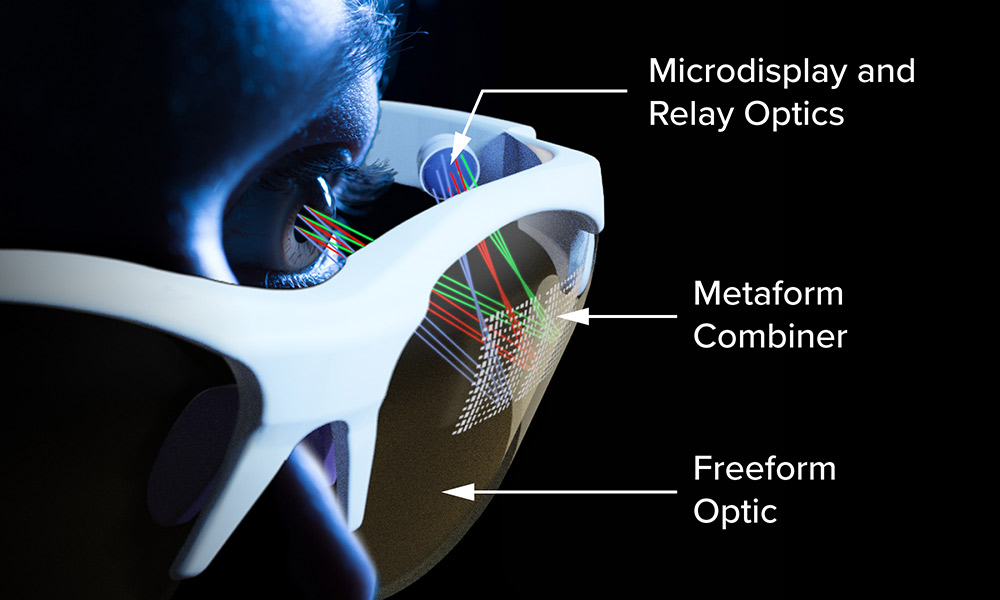In the rapidly evolving technology world, Augmented Reality (AR) glasses are stealing the spotlight in 2025. With giants like Apple, Google, and Meta also entering the arena, AR wearables are no longer fantasy speculations of science fiction novels — they are turning into a part of daily life.

What are AR Glasses?
AR glasses are smart glasses that put digital information — such as text, images, maps, and messages — in front of you in the real world, blending physical and digital experiences. They differ from VR (Virtual Reality) as they don’t substitute what you view, but enhance it.

How Do AR Glasses Work?
These glasses use a combination of:
Cameras and Sensors to sense the world
Microdisplays or Lenses to show visual information in real-time
AI algorithms for object detection and context awareness
Connectivity (Wi-Fi, 5G, or Bluetooth) to sync with your smartphone or the web

Smart Capabilities.
1.Features to Look Out For
2.Real-Time Navigation
3.Get turn-by-turn directions along your line.
of sight without looking down at your phone.
4.Live Translation
Translate text directly or conversation speech in real-time while reading signs in other languages.
5.Health Tracking
Some AR glasses can even have types of eye fatigue check sensors, posture correction, or real-time wellness data.
6.Hands-Free Calls & Messages
Take calls, read messages, and control music through voice commands or subtle gestures.
7.Object Identification
Have on-screen details of landmarks, products, or even names of individuals at events!

Use Cases in 2025
1.Healthcare: Surgeons are being aided by live patient data with AR glasses during surgery.
2.Education: Students are able to see 3D models or historical reconstructions within the classroom itself.
3.Remote Work: Teams are collaborating on virtual 3D objects across the globe by employing AR tools.
4.Retail: Individuals can try clothes, glasses, or makeup virtually before buying.
Best AR Glasses of 2025
Apple Vision Lite – Thin and lightweight, with deep iOS integration.
Meta Ray-Ban Meta Smart Glasses – Fashionable, designed for AR use every day.
Google Iris Project – Rumored to be productivity and cloud-based AR-driven.

Privacy and Safety Concerns
Like any smart device, AR glasses raise valid issues:
Data privacy (what the glasses are capturing and posting)
Distracted walking/driving
Social embarrassment in public
Companies are addressing these with transparency settings, visual recording reminders, and stronger data protection.
What’s Next?
We‘re only scratching the surface of AR potential. Future releases can feature:
Brain-computer interface (BCI) integration
Enhanced battery life and processing
Wider field-of-view (FOV)
Lower consumer cost
Final Thoughts
AR glasses are transforming the way we interact with the digital and physical world. Whether navigating a city, conducting a meeting, or simply looking at the weather, AR technology is revolutionizing human interaction — one lens at a time.
Team Cartovilla- Written by Tawhid



How will AR glasses impact everyday tasks and social interactions in the coming years? Will they become as common as smartphones?
**Comment:**
Augmented Reality glasses in 2025 seem like a game-changer for so many industries! The educational applications, like 3D historical reconstructions, sound especially exciting. It’s good that companies are working on privacy concerns, but will users actually be cautious about distracted walking? Remote collaboration through AR could redefine global teamwork. How will society adjust to widespread AR adoption in public spaces?
**Question:**
As AR glasses become mainstream, how do you balance convenience with potential risks like data privacy and social disruption?
Augmented Reality glasses are indeed revolutionizing how we interact with technology. The integration of AI and connectivity makes them incredibly versatile for various applications. Education and remote work are being transformed by these immersive tools. However, privacy and social concerns remain significant challenges. How will developers ensure these devices are accessible and secure for all users?